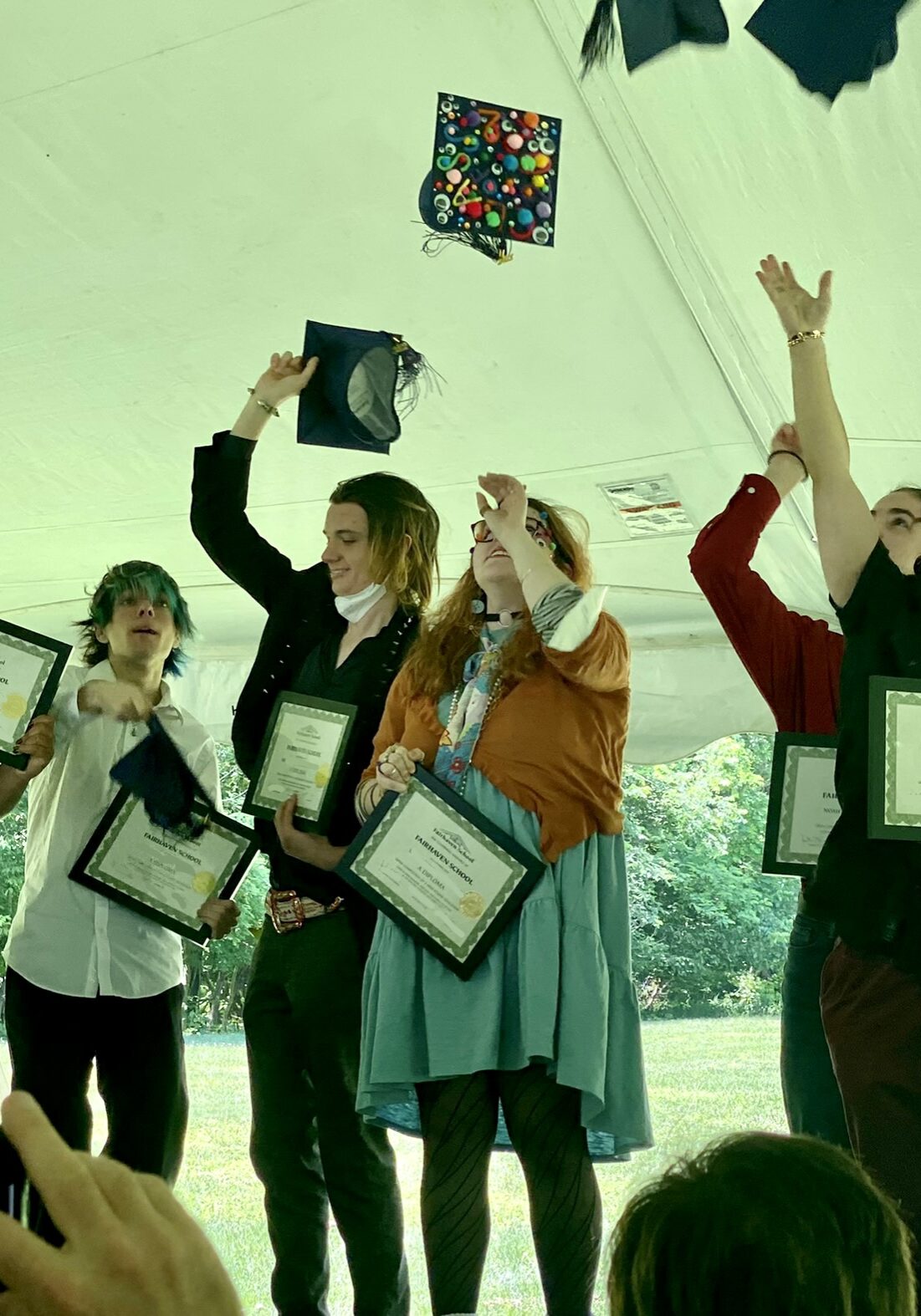True Democracy
Students are equal participants in running the school. Fairhaven is a true democracy: a weekly School Meeting made up of students and staff votes on all aspects of the school’s operation, from budgeting to staffing to school rules. Interpersonal conflicts, rule breaking, and other issues of justice are resolved democratically by the Judicial Committee. People learn firsthand what it means to live in a working democracy, with all the freedom and responsibility it entails.
School Meeting
There is no principal at Fairhaven. Students of all ages and staff members have an equal vote in our democratic process. The weekly School Meeting makes all the day-to-day decisions about how the school is run. School Meeting also makes financial decisions and rules about other aspects of the school, including but not limited to the use of the rooms and educational equipment, rules about the conduct of its members, and fiscal decisions. School Meeting is run by an elected Chair and recorded by a Secretary. It elects staff annually, and creates committees and clerkships as needed to carry out its decisions.
Judicial Committee
One of the most important committees, the J.C. (Judicial Committee) has responsibility for enforcing the rules the School Meeting has established. It is the only committee on which every member of the School Meeting eventually serves (much like jury duty). The J.C. receives written complaints of rule violations (Maya left a mess in the Art Room; Tyler tripped Erin), hears from both the plaintiff and the defendant, calls witnesses and investigates as needed, and then determines whether the defendant has broken a school rule. If so, the J.C. determines an appropriate consequence (Maya can’t go in the Art Room for two days; Tyler must do a half-hour of community service). The J.C. can refer serious incidents to School Meeting for sentencing, where appeals of J.C. decisions can also be made. Not every dispute goes through the J.C. process, and people may work through problems informally.
Committees & Corporations
Admissions, Bookkeeping, Grounds Maintenance, Aesthetics, and Public Relations are all examples of committees formed by the School Meeting. When a committee leader or an individual expert is needed, a “clerk” is elected. There is, for example, a Clerk who deals with outside authorities — fire inspectors, insurance agents, county officials, and the like — as well as an Office Clerk, a Building Maintenance Clerk, and a Medical Supplies Clerk, among others.
Attendance
Fairhaven School is open from 8am-5pm. Students are required to attend for a minimum of five hours per day. If a student does not meet their five hour requirement, attendance for that day shall be recorded as a "half day".
Graduation
Students who have spent at least three years at Fairhaven School may earn a diploma by defending the thesis that their experiences while enrolled at Fairhaven have enabled them to develop the problem-solving skills, adaptability, and the abilities needed to function independently and responsibly in the world they are about to enter. Diploma candidates must declare their intent to graduate and answer questions at a special winter Assembly of parents, students, staff and public members. They then meet with their individual graduation committees for feedback and guidance prior to defending their written theses before a Diploma Committee made up of three experienced staff members from other Sudbury schools. A majority of positive votes from the Committee is the final requirement of the diploma process.
Some students decide not to seek a diploma. Alumni from Fairhaven and other Sudbury schools have gone on to lead successful lives. Most Fairhaven graduates attend college, some after earning diplomas, some after choosing not to do so.

Staff
To distinguish both the school and its employees from traditional schools, Fairhaven adopted Sudbury Valley’s nomenclature, calling its faculty “staff members” rather than “teachers.” Staff at Fairhaven can play both the administrative and teaching roles found in other schools, but they also wear a variety of other hats throughout each day. Staff can be mentors and role models, coaches and mediators, leaders and listeners, artists and judges.
A deep understanding of the philosophy is critical. Like librarians, staff don’t intrude, providing information and support only when asked. Staff are careful not to push their personal views on students and to be respectful of their autonomy. At the same time, as equal members of a vibrant community, staff add to the richness of the school culture by engaging freely in conversations in their own individual ways.